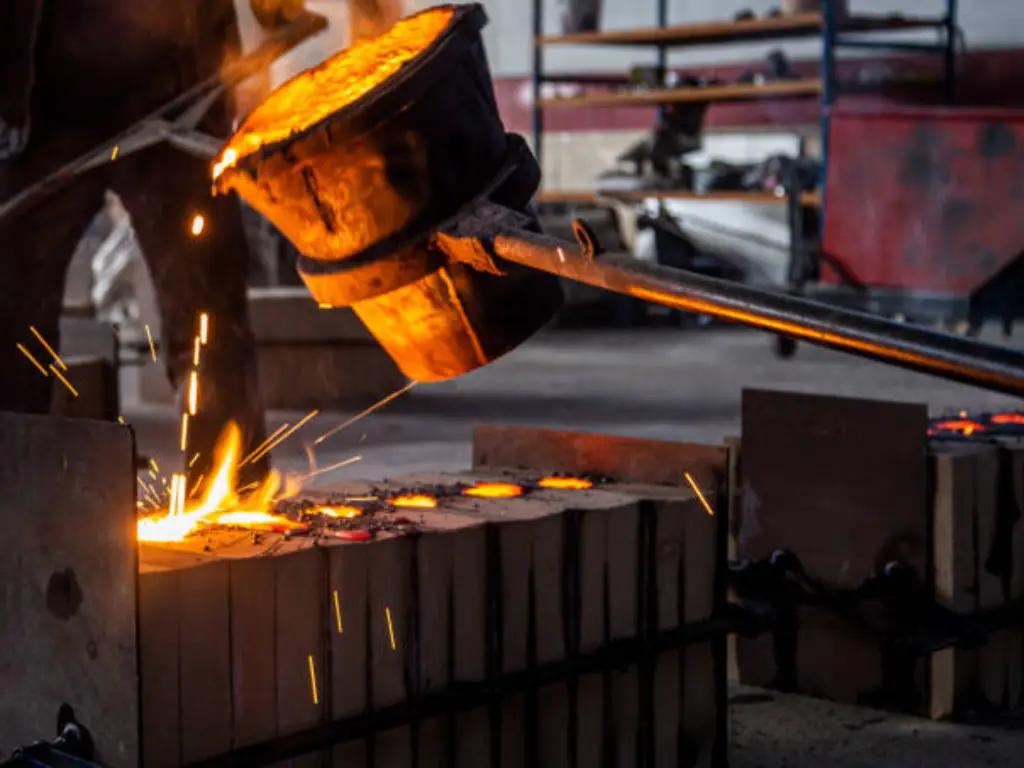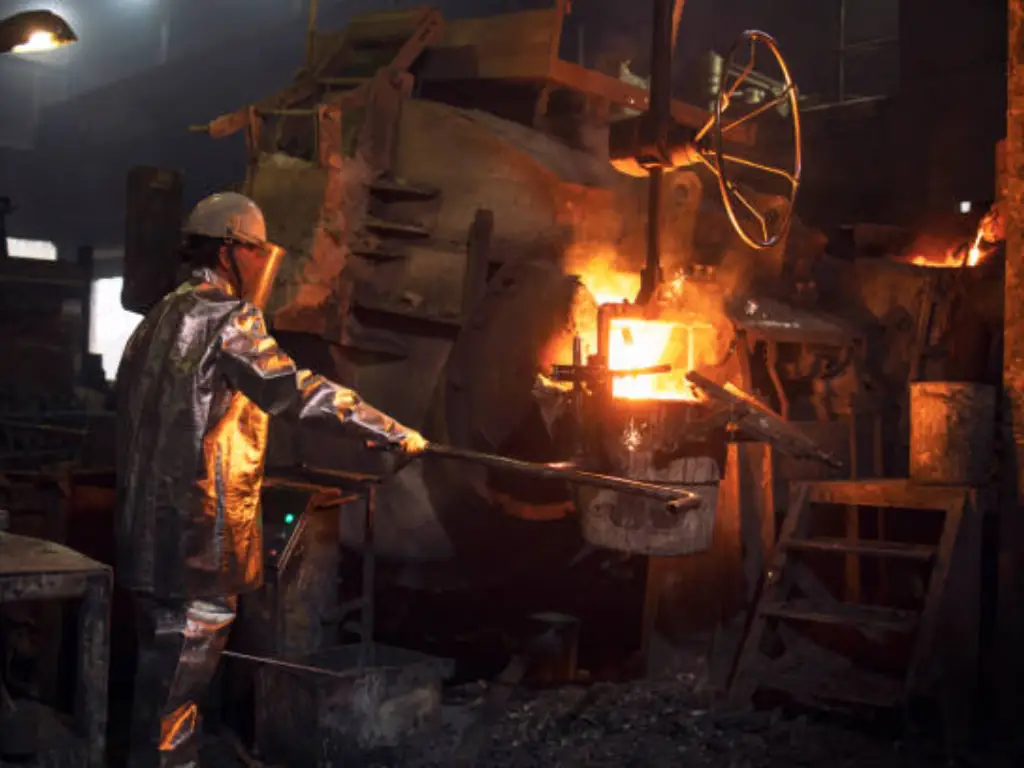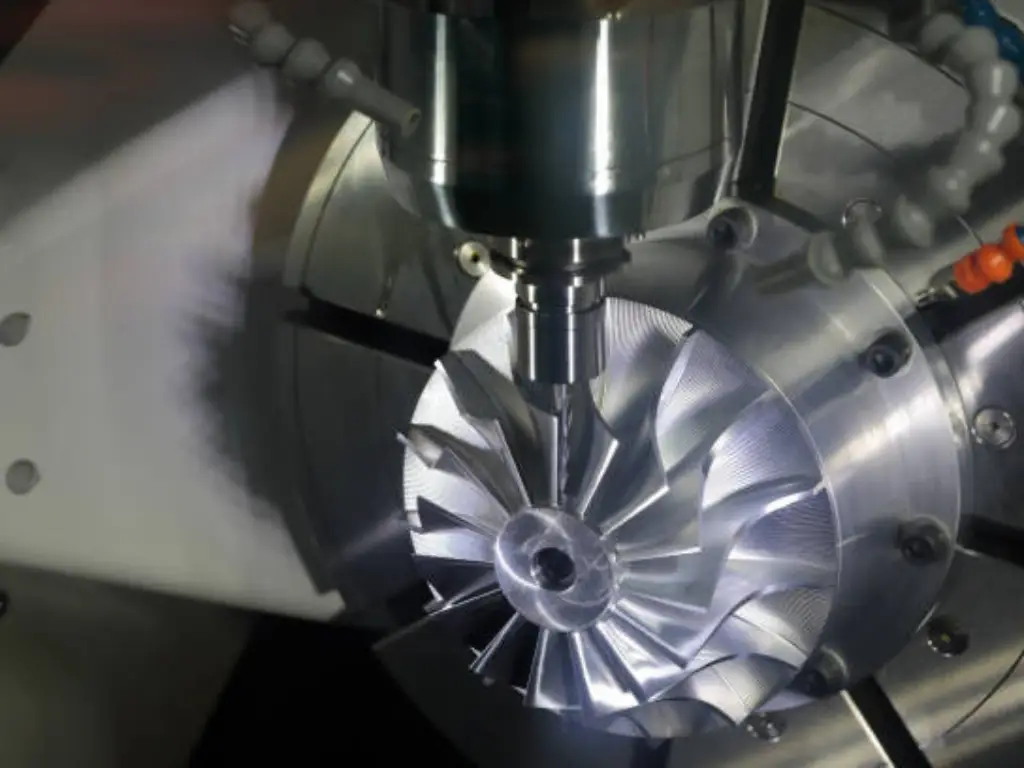Nickel Alloys
- Home
- Nickel Alloys
Nickel Alloys Overview
Nickel alloys, which contain mainly nickel and are reinforced with such elements as chromium, molybdenum, and cobalt, are commonly used in aerospace, power generation, and chemical processing for their extraordinary strength and corrosion resistance. At BESSER, we utilize vacuum and investment casting to produce high-performance nickel alloy components, tailored to complex designs and demanding applications.
Advantages of Nickel Alloys
Superior heat resistance
High corrosion resistance
High-temperature strength and toughness
Oxidation resistance
Excellent weldability
Efficient formability
Various Nickel Alloys Features and Applications
Seeking specialized nickel alloy castings for critical applications? BESSER combines advanced casting techniques with extensive material expertise to deliver high-strength, corrosion-resistant components. View our alloy selection below, or get in touch for tailored support.
| Alloy Types | Features & Uses |
|---|---|
| Inconel 718 | Nickel-based superalloy with high strength, corrosion, and oxidation resistance up to 1400°F (760°C). Used in jet engines, gas turbines, and cryogenic storage. |
| Inconel 625 | Nickel-chromium-molybdenum alloy with excellent seawater and chloride stress corrosion resistance, good fatigue strength. Applied in chemical processing, saltwater parts, furnace hardware. |
| Rene 41 (Annealed) | Premium aerospace superalloy with outstanding strength retention at high temperatures (UTS: 100-110 kpsi), ideal for jet engine components and rocket motor casings. |
| Mar-M-247 (Hardened) | Advanced high-temperature alloy (UTS: 135-145 kpsi) with superior creep resistance, specifically developed for turbine blades and hot section components in gas turbines. |
| Haynes 230 (Annealed) | Highly ductile nickel alloy (Elongation: 35-45%) with exceptional thermal stability, preferred for combustion chambers, heat exchangers, and industrial furnace components. |
| Hastelloy X | Nickel-chromium-molybdenum alloy, high oxidation resistance, good weldability, retains strength at high temps. For furnace parts, gas turbines, chemicals. |
| Hastelloy C276 | Nickel-molybdenum-chromium alloy, superior chemical corrosion resistance, ideal for reactors, marine parts. |
| Monel 400 | Nickel-copper alloy resists acid and alkali corrosion, good mechanical properties. Used in marine shafts, pumps, oil-well tools. |
| Monel K500 | Precipitation-hardened nickel-copper alloy, stronger and harder than Monel 400, maintains corrosion resistance. Ideal for pumps, doctor blades, oil-well tools. |
| Inconel 713 | Nickel superalloy, good creep and oxidation resistance at high temps, for turbine blades. |
| Inconel 792 | Nickel alloy, high-temp strength, oxidation and creep resistant, for jet engine hot sections. |
| MM247 | Nickel alloy, high strength, good creep resistance, ideal for turbine blades. |
| R77 | Nickel superalloy, high tensile strength, good thermal stability, for aerospace. |
| U500 | Nickel superalloy, oxidation and high-temp strength, for turbine blades and fasteners. |
| CW2M (Annealed) | Corrosion-resistant nickel alloy, good high-temp stability, used in chemical and marine components. |
| Monel A (As-Cast) | Nickel-copper alloy, good high-temp strength and corrosion resistance, for marine, chemicals. |
| Monel E (As-Cast) | Nickel-copper alloy, superior corrosion resistance, used in power generation and marine. |
| Monel S (Annealed) | Nickel-copper alloy, work hardening, high-temp strength, for high-stress chemical components. |
| Monel S (Hardened) | Nickel-copper alloy, enhanced strength, wear resistance, corrosion resistant in marine. |
Over 200 material grades developed and produced
Utilize international standards (GB, ASTM, AISI, DIN, NF, JIS, BS, AS, AAR, etc.) for material quality
Efficient resource utilization reduces production costs
Proven expertise in controlling alloy composition for better performance
Advanced SPECTRO spectrometers ensure precise chemical composition
Detailed reports provided with chemical composition and dimensional data
We Guarantee Optimal Alloy Formulation and Cost Control
FAQs About Nickel Alloys Casting
Get the answers you need about nickel alloy casting here.
What are the differences between nickel alloy and stainless steel casting?
Nickel alloy castings offer superior heat and corrosion resistance, particularly at higher temperatures, which is suitable for extreme environments. Stainless steel pays more attention to corrosion resistance and overall mechanical properties.
Why are nickel alloy castings costly?
Nickel alloy castings are expensive because of the high cost of raw materials and the complex casting process. The high nickel content drives up material costs, and the precision casting frequently necessitates the use of vacuum furnaces for optimal results.
What are the most common nickel alloys used in casting?
Some of the common nickel alloys include Inconel (625, 713, 718), Hastelloy, Monel (nickel-copper alloys), and nickel-iron alloys such as Invar. Each provides various properties tailored to certain applications that need heat resistance, corrosion protection, or mechanical stability.
Can you produce small batch orders?
Yes, we can handle both large-scale and small-batch production, ensuring flexibility in meeting the needs of different clients. We specialize in producing high-quality custom parts, whether in small quantities or for large-volume orders.
Do you offer post-casting services?
Yes, BESSER provides additional post-casting services, including CNC machining, surface treatments (like polishing, electroplating, and coating), and heat treatment, to meet specific client requirements.
Related Articles
Top 10 Investment Casting Suppliers for 2026
January 28, 2026
No Comments
What is Metal Casting? The Ultimate Engineering Guide
January 28, 2026
No Comments
Casting vs Machining: A Comprehensive Engineering Guide
January 27, 2026
No Comments




